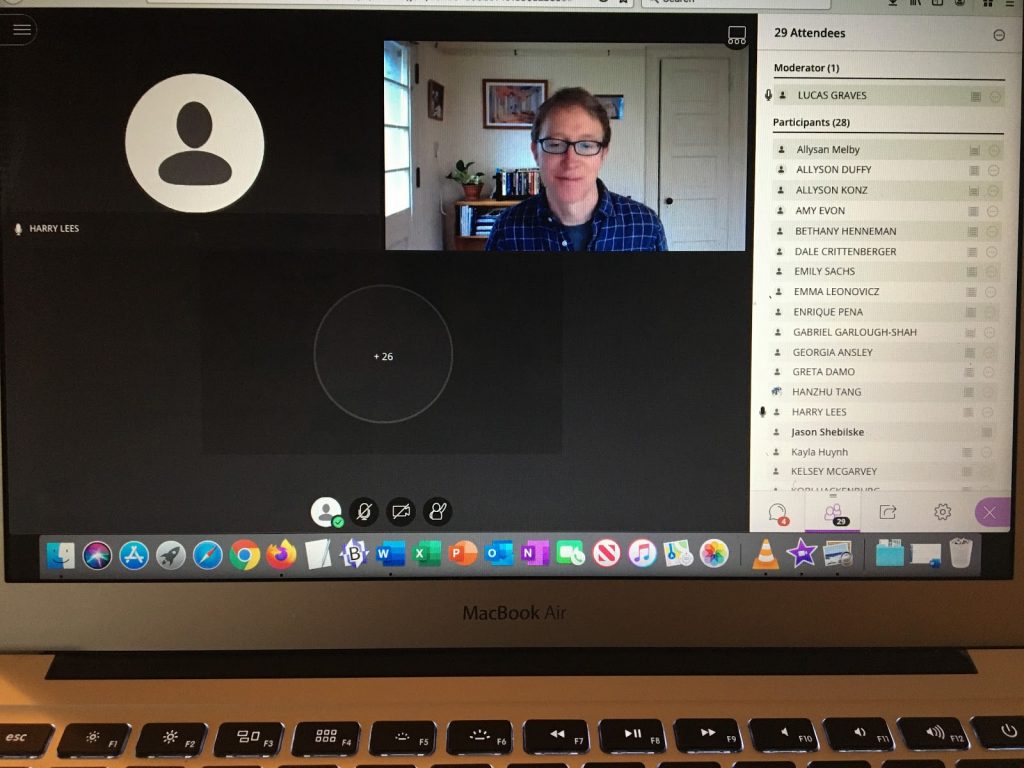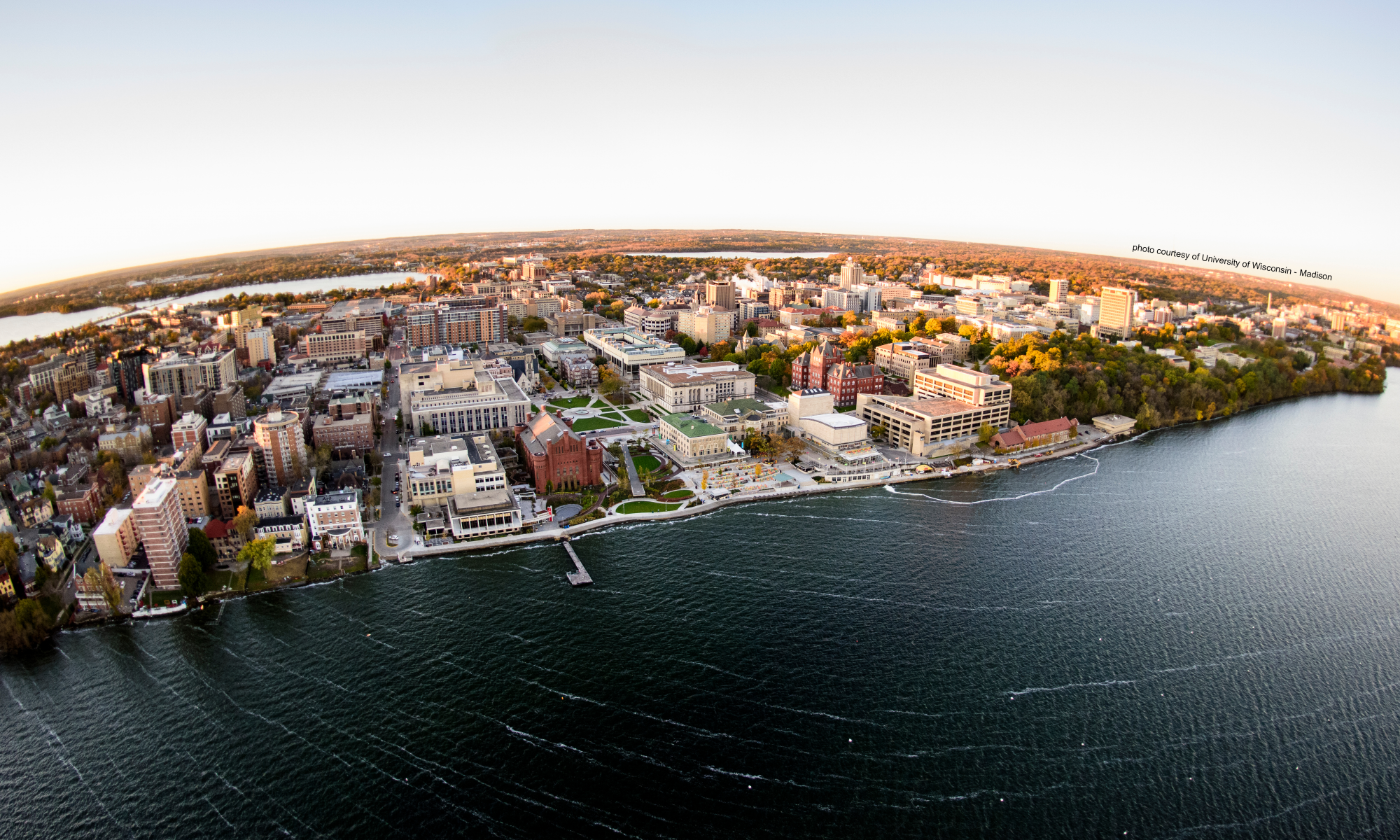Status of Classes Uncertain Heading into Fall Semester

When the announcement was made on March 11 that classes were shifting to online instruction, the University of Wisconsin was initially hoping to return to in-person classes as early as April 10. Then, in-person classes were canceled for the rest of the spring semester. Now, all summer courses have been moved online. Could the university eventually make a decision to move the beginning of fall instruction online?
The university has yet to discuss their plans for the fall semester, but with a mid-April report claiming that normal life may not return until at least 2022, it’s safe to wonder when in-person classes will be allowed to resume around the country.
The School of Journalism and Mass Communication is one department with unique classes that are greatly affected when the course isn’t able to meet in person.
Faculty associate Pat Hastings taught Long-Form Video this spring, and there were several obstacles she had to overcome while transitioning her class to online instruction.
“A lot of the techniques we use [are] really no longer possible,” Hastings said. “I had to rethink how to scale these projects down to make them doable but yet not lose the concepts.”
When the decision to suspend in-person classes was announced, Hastings and her students had to make several drastic changes to their final project, which involved filming an 8-10 minute documentary.
“For the long-form class, we had to change a lot,” Hastings said. “Most people changed their projects after already having their first one at least halfway done.”
Hastings is scheduled to teach Video Journalism in the fall, which teaches strategies for working in television journalism and allows students to develop their own newscast. Despite the challenges she faced from a lack of in-person classes this spring, Hastings isn’t too concerned about the possibility of online classes in the fall.
“I’m not worried if we are quarantined in the fall,” Hastings said. “The TV news class will be a challenge, but I think I have ways around that.”
Other professors in the journalism department, such as Professor Katy Culver, were prepared for the possibility of having to move classes online this spring.
“Before the UW called off face-to-face classes, I had a strong sense that that was going to be coming, so I started testing some different approaches in my class a week before so that we were kind of ready to go when it hit,” Culver said.
Culver’s class, Law of Mass Communication, relies on a unique mixture of lecturing and group discussions during class. As a result, Culver teaches her lectures synchronously and uses the university’s preferred video chatting platform, Blackboard Collaborate, to split the class into groups.
Junior Johnny Bildings is in Culver’s class, and he discussed the benefits of live lecturing even in a virtual setting.
“Katy Culver does a great job making sure we rely on Blackboard Collaborate to keep interacting with group members in real time, answer her lecture questions and keeping us engaged,” Bildings said. “Although it’s strange not seeing friendly faces, I would say the class structure and quality has been a pretty straightforward transition.”
Professor Kathryn McGarr used live lectures for one of her classes while she pre-recorded lectures for another. From a teaching standpoint, she discussed the shortfalls of being unable to connect with her students when lectures are pre-recorded.
“It’s just hard to know when students are getting it or when I’m going too fast or when I’m not explaining something well because they can’t stop me or give me a confused look, and I can’t stop the lecture and ask them for questions,” McGarr said.
In addition to having some uncertainty regarding students’ understanding of the course material, professors are also tasked with checking in on their students’ overall well-being. Professor Lucas Graves emphasized the importance of keeping track of their students during this period of uncertainty.
“Suddenly you’re really thinking about everyone’s well-being in a way that you might not be normally,” Graves said. “We’re always thinking about students’ well-being, but right now it’s front and center. It’s at the forefront of our minds. We’ve just tried to be really thoughtful about being aware of the challenges that different people are facing.”
Graves currently teaches a discussion-based course focused around how mass media affects political behavior. However, he’s tasked with teaching Mass Communication Practices in the fall, a six-credit course that all journalism students are required to take upon acceptance into the department.
“[Mass Communication Practices] is such an important class, it’s really the foundation for all of the work that students who are majoring in journalism and in strategic communication will do through the rest of their time in the J-School,” Graves said. “It depends so much on the work done in lab, and even on the collaboration and conversations that happen during lecture when everyone is seated together at the same table, and that’s very hard to recreate in an online environment.”
While students were able to build relationships with their professors and classmates in an in-person environment during the spring semester, part of the challenge of the fall semester potentially beginning online would be the inability to cultivate those types of relationships.
Even if the fall semester does begin with in-person courses, Graves stressed how there would still be a large amount of uncertainty at universities, both nationwide and around the world.
“Even if there are in-person classes in the fall, we’re not sure what the impact would be on enrollment,” Graves said. “Universities are a really large, complicated, interconnected engine, and this crisis hits almost every part of it, so there’s a lot of uncertainty right now, but I really hope that we’re teaching in-person in the fall and that we can begin the process of re-establishing normal routine. It’s not going to happen overnight, but I think a lot of us are anxious to start to work on that.”
It’s unclear when normal life will resume or what exactly it will look like, but students and professors are both eager to begin that process.

